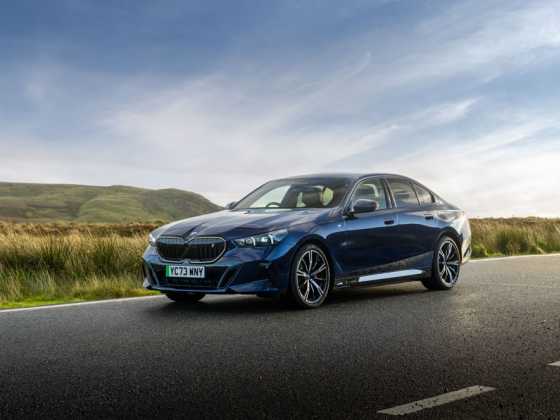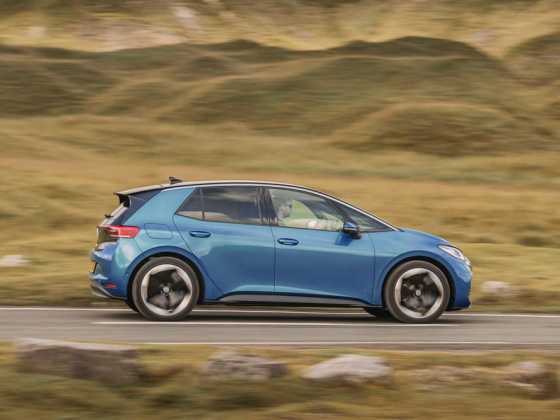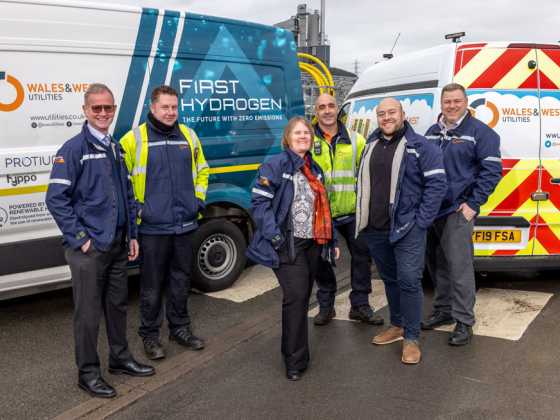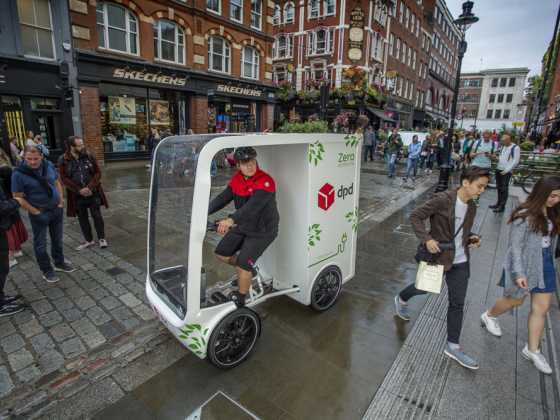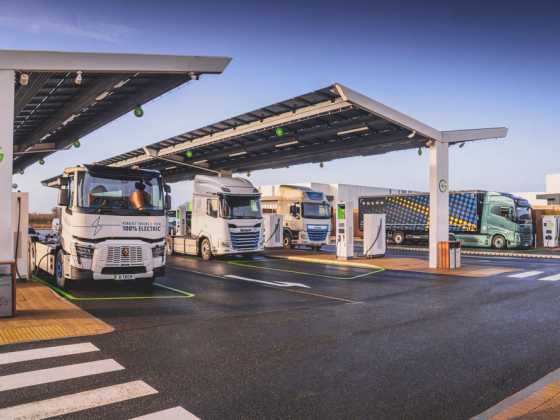Expert Panel: SMEs and clean air measures
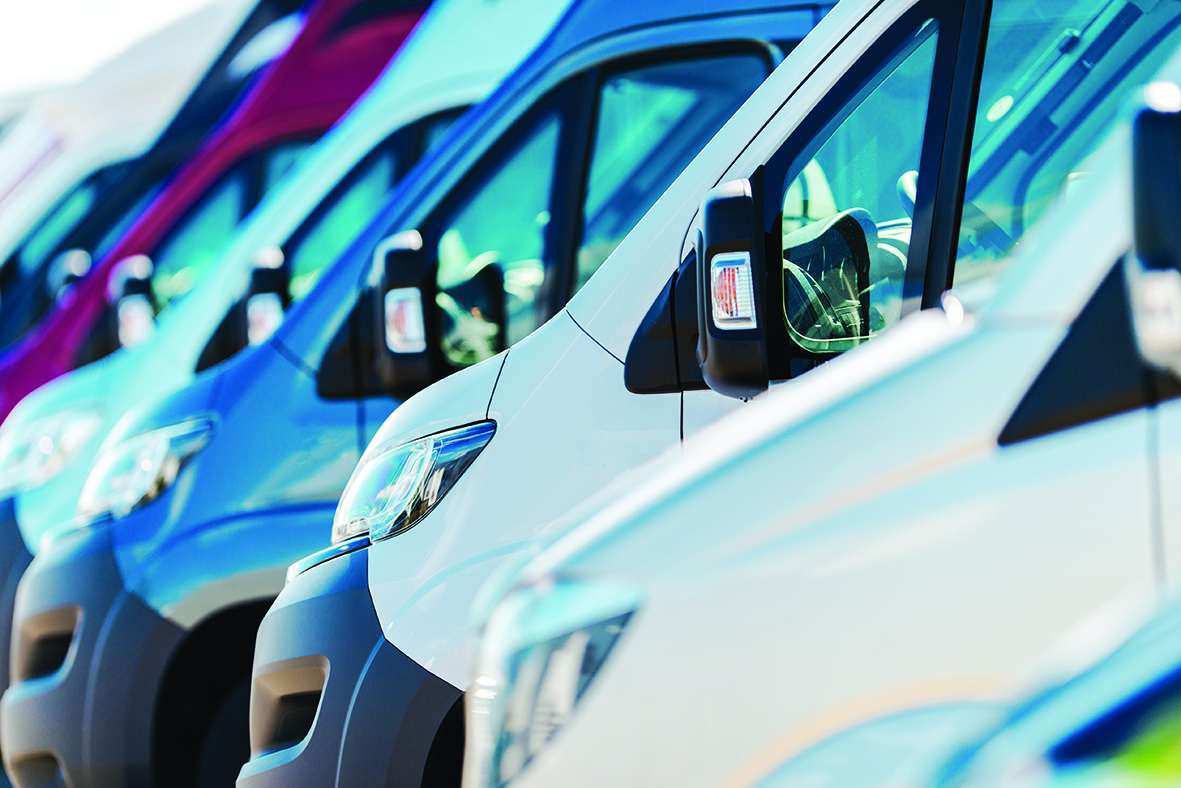
London’s van scrappage scheme targets micro-businesses in the acknowledgement that smaller firms will be hit hardest by ULEZ penalty charges or the cost of upgrading their vehicles. How else can SMEs be supported with Clean Air Zones and other changing air quality regulations? Stuart Thomas, Sam Sterry and Duncan Chumley discuss
While research suggests that many SMEs are in favour of Clean Air Zones as a response to air pollution, the reality is that smaller firms will be hardest hit by penalty charges or the cost of upgrading their vehicles to meet emissions standards.
Seventy-five per cent of SMEs have said they are in favour of Clean Air Zones (CAZs), according to last year’s Close Brothers Asset Finance Business Barometer.
London’s Ultra Low Emission Zone (ULEZ) came into force in April 2019. Diesel cars and vans that do not meet the latest Euro 6 standard have to pay £12.50 a day to drive in central London.
Understanding that penalties for entering clean air zones can be unfair to smaller businesses, the Mayor of London has introduced a scrappage scheme to help businesses with fewer than 10 employees get rid of their polluting vans so they can adopt ULEZ-compliant vehicles.
These grants reduce the cost of an electric van by up to 20 per cent or a maximum of £8,000. Businesses and charities will have to be registered in London or have been frequently observed driving in the Congestion Charging Zone.
At the time of launching the scheme, the Mayor urged central government to match-fund the scrappage scheme so it could support other Londoners.
“There is no question that change needs to happen to reduce the impact of emissions on air quality,” comments Sam Sterry from Europcar Mobility Group UK.
“But it’s vital that there is clear recognition that such change can have a pretty significant impact on the finances – and maybe even survival – of small businesses.”
Europcar Mobility Group UK conducted research ahead of the launch of the Ultra Low Emission Zone in London and found that its potential impact on the smallest businesses was not particularly well understood or prepared for.
Half of small businesses (with one to nine employees) that use vans hadn’t made plans, even as late as February. And more than one in eight small businesses weren’t sure what the requirements of the ULEZ were. More than a third (34 per cent) of London based businesses said that these regulations will be the single biggest transport issue that affects their business in 2019. Despite this, at the beginning of February only 36 per cent said that they fully understood the impact in terms of vehicle emissions.
Sam comments: “This lack of understanding is particularly concerning as the majority of small businesses (88 per cent) surveyed use their vans at least six days a week. For businesses travelling through the ULEZ every day, driving non-compliant vehicles could add up to over £4,500 a year, per van.
“Initiatives such as scrappage scheme already launched in London, are therefore crucial.”
For micro-SMEs, managing vehicles is very rarely the focus of the business. As such, anything that can be done to make life easier and allow organisations to get on with their day-to-day activities is positive, believes Stuart Thomas from the AA.
Stuart says: “The scrappage scheme gives smaller organisations a route to cleaner Euro 6 vehicles, the ability to avoid air quality charges and the chance to remain cost-competitive without having to pass on fees and fines to customers.”
Speaking about the air quality measures outside of the capital, Stuart adds: “There are more than 5.5m SMEs in the UK, of which two fifths operate vehicles (38 per cent), so the opportunity to make a significant impact on air quality and vehicle emissions clearly extends beyond the M25. We are backing calls for a nationwide scrappage scheme for cars, as well as gross polluters, and would like to see the government working with business organisations and local authorities to deliver greater consistency.
“Improving UK air quality is important to everyone, but SMEs need to know that they will be supported through any transition. We believe that more needs to be done to relieve the cost burden for businesses and to change perceptions, demonstrating to organisations how easy it is to make the shift.”
Scrappage schemes are a great start in helping SMEs to upgrade their fleets, however the current scheme in London has criteria that is quite strict, comments Duncan Chumley from Daimler Fleet Management. He explains: “The London scrappage scheme is only applicable for firms with under 10 employees and up to £632k turnover. They also need to provide evidence that the vans have entered the charging zone at least 52 times in the six months before 22 Feb 2019. So it is very limiting.
“The original government scrappage scheme launched in 2009 was so successful that many manufacturers have kept the scheme going without government funding.
“The London scheme has its benefits, for example the allowance can be used to offset leasing costs, not just outright purchase. But to have any impact on city wide emission levels, the scheme needs to be rolled out to larger businesses and complemented with improved incentives for vehicle sharing, priority lanes for low emission vehicles and better education.”
London’s scrappage scheme can also be used on rental and sharing services across London.
Sam explains Europcar Mobility Group UK’s involvment in the scheme: “We are offering discounts on mid-week daily van rental for businesses who take up the scrappage scheme but do not want to buy new vehicles or sign up to lengthy lease agreements.
“The same principle could be applied elsewhere in the country. Whilst the cash sum provided from vehicle scrappage could be useful to go towards new vehicle acquisition, some businesses may decide to use those funds for other purposes. If they don’t want to face the financial outlay for a new vehicle or commit to a lengthy lease, vehicle rental provides a genuine alternative.”
The role of hybrids
Given the urgency of the need to reduce CO2, Emissions Analytics has argued the case that fleets should adopt hybrids rather than waiting for an adequate supply of fully-electric vehicles, saying they are 14 times better at reducing real-world carbon dioxide emissions. So should SMEs adopt hybrids if they are still unsure about full electric?
Stuart Thomas comments: “While the past 12 months have seen a rapid increase in the number of alternatively-fuelled vans being launched, the market is still tracking behind aspirational targets when it comes to the reality of actually getting hold of one. Between emissions testing regimes, battery supply shortages and manufacturers focusing on their car product ahead of vans and trucks, not to mention the loss of grants and other initiatives for hybrid vehicles, SMEs can be forgiven for not moving quickly to update their commercial fleets.
“In addition, while Clean Air Zones and other emissions-based charges have produced a geographic impact in areas like London, the lack of consistency in the roll-out and how charging will be applied means many organisations are deploying a ‘wait and see’ strategy before making any capital investment decisions. As a result, some businesses are hanging onto their older, more polluting vehicles for longer, which is having the opposite effect on air quality that we are seeking to promote.
“The reality is that full electric will not suit every business need, particularly in relation to payload, range and aligning charging cycles with what might be a 24/7 operation.
“For SMEs, it is important to weigh up the pros and cons for each type of vehicle; look at route planning, range requirements and the specific needs of your business, to make the decision that best suits your fleet.”
Fleets may favour hybrids over full electric until the charging infrastructure is adequate enough. Sam comments on the Europcar Mobility Group’s research: “Over a quarter (28 per ent) of the smallest businesses (under 10 employees) said that they don’t think the electric charging infrastructure is currently adequate. Plus, a quarter of businesses of fewer than 10 employees don’t feel ready to adopt electric vehicles, currently. Perhaps not surprising then that Mayor of London, Sadiq Khan, has set out his strategy for improved charging in the London area. But it can’t be London alone that sees this commitment. It has to be country wide before businesses become willing to take the step into the new drivetrain revolution.”
Sam believes that hybrid vehicles are the right stepping stone to full electric. She says: “With the right training for drivers in terms of driving behaviour, they can make a real difference not only to emissions but to cost for SMEs that are always needing to keep a close eye on their budgets.”
Duncan also believes that hybrid vehicles can be a good stop gap before full EVs are available; but only when correctly deployed. He says: “For urban usage or low mileage drivers, a PHEV is an obvious choice but if it isn’t adequately charged or is predominantly used for long journeys, you are affectively running a petrol engine and can expect to see little decrease in fuel costs. As with all fleet assets, PHEVs and other hybrids must be used correctly and efficiently in order to see the best results.
“If you are unsure – consult your leasing company. Perhaps a long term demo of an electric or PHEV vehicle can be arranged to measure how feasible the deployment could be for your fleet.”
Making the switch to full electric
For those that think full electric could suit their requirements, what advice would our panelists give before taking the plunge?
All our panelists agree that trying an electric vehicle before you buy is the right way to go.
Sam says: “At Europcar Mobility Group UK, we not only have a fleet of electric vehicles available for rent by the day; our E-Car Club all-electric car club also means that small businesses that want the flexibility of vehicle use by the hour can understand the efficiency of electric just by picking up a vehicle from one of the many dedicated bays around the country.
“A key challenge for SMEs is how to keep their people and their products on the road – without making long term commitments in a time of legislative and economic uncertainty. Savvy businesses are turning away from vehicle ownership, instead updating fleet vehicles like they might a smartphone because they want the latest models with the latest technology.”
Duncan points out that the longer you can try an EV, the better, to assess whether they are viable. He says: “Try and negotiate an extended demo so you can use and live with the vehicle for an extended period. You will not be able to establish if an electric vehicle is right for your business after a few laps around the block. What you need to be sure of is that the fuelling and infrastructure needed to run the vehicle is appropriate to your needs.”
Duncan also points out that a clear charging policy is also needed, and fleets should consider telematics to better schedule the deployment and downtime of vehicles.”
Stuart Thomas says that SMEs cannot afford to make mistakes, so they should take advantage of trials and consultancy support on offer. “Our advice for SMEs looking to move to full electric is to engage early with the vehicle manufacturers and charging companies. There is a real desire to share knowledge and experience, so SMEs should be able to take advantage of vehicle trials and extensive consultancy support when deciding which route is best for them. It makes sense to do a vehicle and route analysis, to decide which vehicles can be most easily replaced with full electric, and also where any charging infrastructure would be most effectively sited.
“Ask as many questions as you need in order to feel comfortable with your decision-making, get financial buy-in from everyone involved, and make sure that drivers are part of the process as they will be instrumental to the successful transition.”
Admin burdens
One of the major gripes from SMEs is the amount of vehicle management administration involved, generally because SMEs often don’t have the luxury of employing a full time fleet manager.
Duncan believes that leasing firms can lift some of this burden off SME fleet operators. He says: “An SME may not have a dedicated fleet role. A leasing company like DFM can provide expertise, freeing you up to focus on your business. There is a lot to consider when running a fleet of vehicles; acquisition price, maintenance costs, tax, accident management, fines vehicle disposal and duty of care, to name but a few. This can be a real burden on SMEs both in terms of cost and time. Fleet management companies are set up to remove this headache so SMEs can focus on their core business.
“Through whole life cost analysis and a broader consultation we can also identify where apparent cost savings in one area could actually have negative consequences elsewhere. A long term and rounded fleet policy can be developed that the SME might not otherwise have had the time or expertise to develop.”
Stuart Thomas agrees that SMEs should get support from the industry. He says: “SMEs shouldn’t be afraid to ask their suppliers – lease companiess, insurers, roadside assistance providers – for help and advice. It is in everyone’s interest to keep Britain’s businesses moving, and we’d recommend UK SMEs make their voices heard when it comes to policy and decision-making.
“There is plenty of data and management information available for SMEs, but there are only as powerful as the people interpreting them. We’d recommend that SMEs bring on board experts to help them understand and act on the information at their fingertips.”
Sam adds that ‘mobility’ has added another dimension to fleet management. She says: “Small businesses often do not have the time or resources to apply complex processes to manage employee mobility. This is another task to add to an already long list of administrative jobs that often fall to an already busy owner or manager who probably doesn’t have any fleet management expertise. Tackling this, Europcar has created a truly integrated multi modal solution which delivers a single point of access – and management – for all a business’s mobility needs, thereby reducing the pressure on a business to collect all the information themselves. Europcar One delivers the most efficient customer journey, from reservation creation, through the mobility service usage, to the point of invoicing. It gives customers a wide choice of booking options through a single login, whether it’s a taxi for a single trip or a six month rental of a brand new vehicle for project work.
“Plus it delivers the insight to help businesses understand and analyse how the use of different mobility solutions is impacting financial and environmental targets.”

